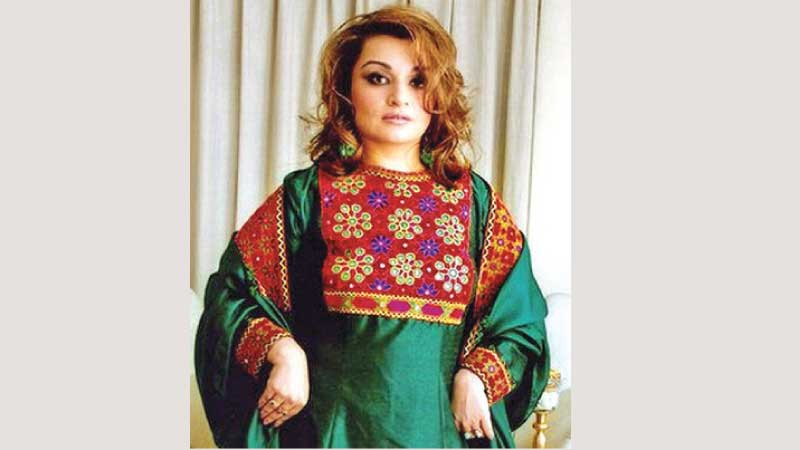Afghan women have started an online campaign to protest against the Taliban’s strict new dress code for female students. Using hashtags like #DoNotTouchMyClothes and #AfghanistanCulture, many are sharing pictures of their colourful traditional dresses. The BBC’s Sodaba Haidare spoke to the woman who sparked this social media fightback.
Type “Afghan traditional clothes” into Google and you will be overwhelmed at the sight of multi-coloured cultural dresses. Each one is unique, with handmade embroidery and heavy designs, small mirrors placed carefully around the chest, skirts long and pleated, perfect for twirling during “Attan” or Afghanistan’s national dance. Some women sport embroidered hats, others wear heavy headpieces, depending on which region of Afghanistan they come from.
A scaled-back version of similar dresses was worn every day by women going to university or their place of work in the past 20 years. Sometimes the trousers were replaced by jeans and the scarves were draped on their heads instead of over the shoulders.
But the pictures of women in long, fully veiled black abayas, covering their faces and hands, and rallying in Kabul over the weekend to support the “Taliban order” have been a huge contrast.
In one video, the women holding a pro-Taliban rally in the capital were seen saying Afghan women wearing make-up and in modern clothes “do not represent the Muslim Afghan woman” and “we don’t want women’s rights that are foreign and at odds with sharia” - referring to the strict version of Islamic law supported by the Taliban. Afghan women around the world were quick to hit back. Joining a social media campaign started by Dr Bahar Jalali, a former history professor at the American University in Afghanistan, they used hashtags such as #DoNotTouchMyClothes and #AfghanistanCulture to reclaim their traditional clothes.
Ms Jalali says she started the campaign because “one of my biggest concerns is Afghanistan’s identity and sovereignty is under attack”. Posting a picture of herself on Twitter in a green Afghan dress, she urged other Afghan women to share theirs to show “the true face of Afghanistan”.
“I wanted to inform the world the attires that you’ve been seeing in the media [referring to those worn by women at the pro-Taliban rally] that’s not our culture, that’s not our identity,” she said. Many were taken aback by the way the women had dressed at the pro-Taliban rally; the nib and hand coverings are seen as a foreign concept to many Afghans who are used to the colourful, kaleidoscopic traditional dresses.
Every region of Afghanistan has its own traditional clothes but, despite the diversity, they all share a common theme: lots of colour, mirrors and embroidery. And the women share the same thought - that their clothes are their identity.
“This is our Afghan authentic dress. Afghan women wear such colourful and modest attires. The black burqa has never been part of the Afghan culture,” tweeted Spozhmay Maseed, a rights activist based in Virginia. “For centuries we have been an Islamic country and our grandmothers have been dressed modestly in their own traditional clothes, not the made-up blue ‘chadari’ and Arab’s black burqa,” says Ms Maseed.
“Our traditional clothes represent our rich culture and history of 5,000 years which makes every Afghan feel proud of who they are.”
Even those who lived in the most conservative parts of the country say they had never seen women dress in niqabs, a black garment covering the face. “I posted that photo because we are Afghan women, we wear our culture with pride and we think that our identity cannot be defined by some terrorist group. Our culture is not dark, it’s not black and white - it’s colourful and there is beauty, there is art, there is artisanship and there is identity,” says Lima Halima Ahmad, a 37-year-old Afghan researcher and founder of Paywand Afghan Association which focuses on women’s issues. As someone who lived and worked in Afghanistan for the past 20 years, Ms Ahmad says: “Women had a choice. My mother wore a long and big veil and some women chose to wear smaller ones. Dress codes were not enforced on women. (BBC)



Add new comment